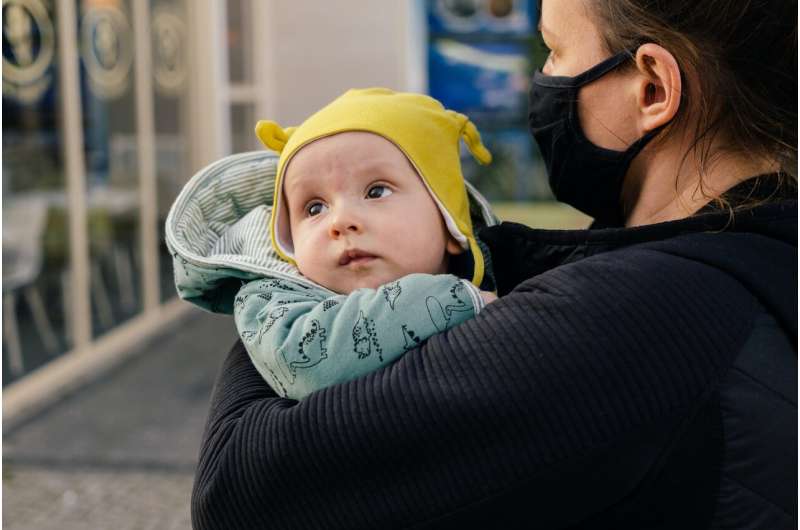Data shows how the pandemic changed day-to-day life

For an entire year now, the pandemic has upended life. Using publicly available data, researchers in the Cockrell School of Engineering at The University of Texas at Austin have quantified the many ways day-to-day activity has changed since the pandemic began.
The researchers pulled data from 11 sources to create a new online dashboard that documents major changes in Austin. The dataset includes traffic patterns at major intersections throughout the city, COVID-19 case counts by ZIP code, water usage, real estate activity, retail spending, job postings, calls for city services and more.
"You see a lot of economic impact studies that show one thing spread across many places," said Zoltan Nagy, an assistant professor in the Department of Civil, Architectural and Environmental Engineering who led the project. "What we are trying to show is that these things aren't isolated; not everyone or everything is impacted in the same way."
The data bears out trends we've seen with our own eyes. Traffic is down, people aren't going to restaurants and retail stores as frequently, and there is a greater need for government assistance.
The dataset also captures specific moments in time. For example, in early March 2020, there was a huge spike in consumer spending and vehicle traffic as uncertainty reigned amid the onset of the pandemic in the U.S.
"There was panic in the data," Nagy said.
What followed was a severe drop in everything from traffic to retail spending. Nearly a year after the pandemic begin, February snowstorms forced a near complete shutdown of vehicle traffic, even more so than policy-based lockdowns in March 2020.
Activity levels have begun to rebound closer to pre-pandemic rates, but many data points remain down 20% to 30%. For example, transit ridership is down nearly 50% compared with pre-pandemic times, and small-business revenue has dropped by nearly a third. However, other indicators such as job postings have bounced back stronger.
Here are a few key findings:
- Online job postings in January reached a similar level compared with the previous year. Outside of a few key sectors that rely on in-person traffic, such as leisure and hospitality, most industries locally are hiring at a similar level compared with the beginning of 2020.
- Despite a surge in job postings, small businesses in the Austin area are still struggling. Small-business revenue is down 37% on average since June 2020 compared with the previous year. And the number of small businesses open is down about 40% compared with 2019.
- Public transportation has taken a major hit. In January and February 2020, ridership numbers were up compared with 2019 levels. But since June, ridership has dropped an average of 47% compared with the 2019 baseline.
- Though public transportation is lagging, people continue to travel. Using Apple Mobility data, the researchers determined that walking and driving direction requests are up 24% and 3% respectively compared with the 2019 baseline.
- The real estate industry is booming in the Austin area. A temporary slowdown came in March and April 2020. But since June, home sale prices and volume have increased by 17% and 40% respectively above 2019 numbers.
The full dashboard is available online. Kingsley Nweye, a graduate student in the building energy and environments program, led the data collection and organization. Calvin Lin, a senior environmental engineering major, led the dashboard development and automation.
More information: IEL Covid-19 Dashboard: www.covid19atx.net/
Provided by University of Texas at Austin




















